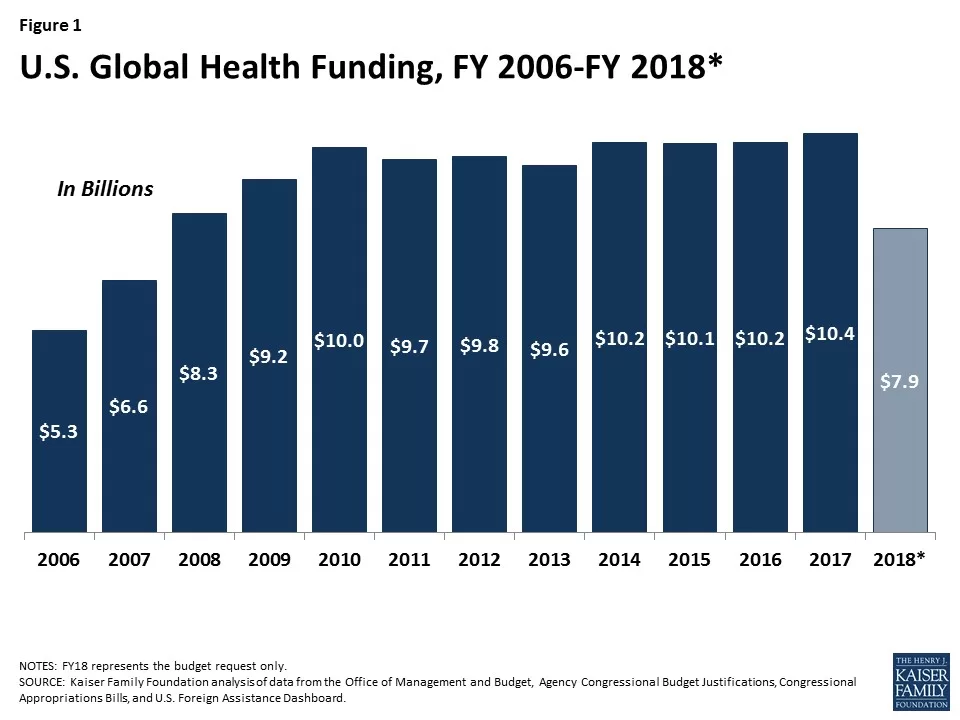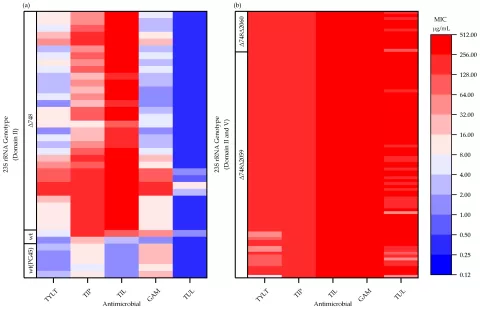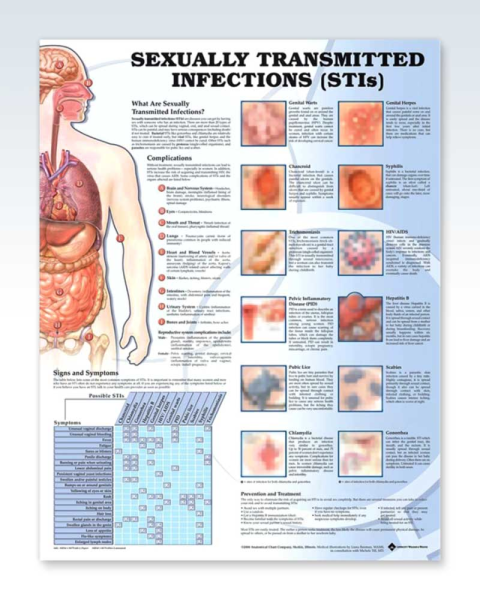The recent U.S. funding cuts impact global health significantly, causing considerable disruptions in vital healthcare initiatives around the world. As the United States has historically been a key contributor to global health funding, its withdrawal raises profound concerns, particularly regarding programs for malaria treatment funding and HIV/AIDS prevention through PEPFAR funding cuts. WHO Director-General Tedros Adhanom Ghebreyesus emphasized that the abrupt reduction in financial support has the potential to reverse years of progress made in healthcare, leaving many vulnerable populations without essential services. The current situation poses an urgent challenge for international organizations tasked with managing diseases like malaria, HIV, and tuberculosis, highlighting the need for a reevaluation of funding strategies. As the ripple effects of these funding cuts unfold, the call for a more humane approach to global health funding becomes increasingly vital.
The implications of U.S. funding reductions on worldwide health initiatives are severe, drawing attention from health leaders and organizations alike. Health care disruptions caused by these cuts jeopardize efforts against infectious diseases and hinder progress toward achieving sustainable health goals. With a specific focus on malaria treatment and widespread HIV prevention, the situation underscores the necessity for increased global health financing and cooperation. WHO officials have voiced the urgent need for a unified response to these challenges, advocating for innovative funding solutions to ensure the resilience of healthcare systems across affected countries. As the narrative unfolds, the role of international partnerships in mitigating these setbacks will be crucial to safeguarding public health.
Impact of U.S. Funding Cuts on Global Health Initiatives
The recent cuts in U.S. funding for global health initiatives have raised serious concerns among public health officials and organizations worldwide. The WHO Director-General, Tedros Adhanom Ghebreyesus, emphasized the importance of a structured and humane withdrawal from funding commitments, highlighting the potential repercussions for ongoing health projects that rely heavily on U.S. contributions. Key programs aimed at combating diseases like malaria and Tuberculosis (TB) are already experiencing disruptions that pose significant threats to public health.
Furthermore, funding from the U.S. has historically played a crucial role in supporting initiatives such as the President’s Emergency Plan for AIDS Relief (PEPFAR) and malaria treatment funding. The financial withdrawal could reverse years of progress made in controlling these diseases, leading to an increase in morbidity and mortality rates. Health organizations must now navigate a challenging landscape as they seek alternative financing and bolster domestic funding sources to mitigate these impacts.
Effects on Malaria and HIV Treatment Programs
As noted by the WHO, the cuts to malaria and HIV treatment funding have triggered alarming disruptions in essential healthcare services. Over the last twenty years, U.S. support has been vital in preventing millions of malaria cases, yet current stock shortages and funding deficits are jeopardizing these advancements. The Director-General warned that ongoing disruptions could precipitate a public health crisis, leading to an estimated 15 million new malaria cases within the year, eclipsing the victories achieved so far.
Similarly, halting funding for PEPFAR has devastating implications for the fight against HIV/AIDS, as over 50 countries are already facing cuts to vital treatment and prevention services. The lack of access to antiretroviral therapy potentially risks the lives of countless individuals, exacerbating an already precarious situation in areas already heavily burdened by the epidemic. Ensuring a sustained focus on global health funding is essential to prevent regression and to continue the fight against these diseases.
WHO’s Call for Increased Global Health Funding
In light of the recent U.S. funding cuts, the WHO has called for a united global response to ensure sustainable health financing. Tedros has urged not only the U.S. to reassess its funding strategies but also other nations and organizations to step up their contributions to global health initiatives. As diseases such as measles see a surge in cases, the need for comprehensive funding to support disease prevention and treatment becomes increasingly vital.
Moreover, the WHO emphasizes the dire need for countries to enhance domestic health spending in order to build a resilient healthcare infrastructure capable of withstanding shocks from funding volatilities. Strengthening local healthcare systems can mitigate reliance on international support and create a more sustainable approach to global health that fosters self-sufficiency and long-term health security.
The Consequences of Reduced Healthcare Support in Afghanistan
In Afghanistan, reduced U.S. funding has led to alarming healthcare shortages across the region, threatening the livelihoods of millions. The WHO reports that as many as 80% of healthcare services may shut down in the coming months due to lack of financial support, raising serious alarms about a looming humanitarian crisis. Communities are left vulnerable, risking lives due to the closure of critical healthcare facilities that offer essential services.
The closure of 167 healthcare facilities has already left 1.6 million people without access to medical care, highlighting the urgent need for increased funding to reverse these detrimental trends. As healthcare workers grapple with the reality of these shutdowns, the implications are wide-ranging, significantly affecting maternal and child health outcomes and heightening the risk of infectious disease outbreaks.
Strengthening Regional Health Responses in Africa
In response to U.S. funding cuts, the Africa CDC is proactively exploring ways to reinforce regional health responses. The recently announced African Epidemic Fund aims to bolster support for outbreak responses across the continent. With an increase in health challenges, including the ongoing impacts of multi-country outbreaks, Africa CDC is determined to establish sustainable financing solutions that facilitate readiness and resilience in tackling public health emergencies.
Collaboration between regional agencies, such as the Africa CDC and the European Centre for Disease Prevention and Control (ECDC), signifies an important shift towards shared commitments in managing health crises. This partnership focuses on enhancing cooperative frameworks for outbreak response and developing a ‘One Health’ approach critical in addressing health challenges, including antimicrobial resistance and effective disease tracking.
The Need for Innovative Funding Solutions in Global Health
As traditional funding sources face uncertainties due to U.S. cuts, innovative financing mechanisms are essential for sustaining global health efforts. Organizations must explore alternative models such as social impact bonds, public-private partnerships, and multidonor funding initiatives to ensure continuous support for critical programs. These innovative solutions can diversify funding streams and cushion the impact of funding cuts from traditional donors.
Establishing new financial frameworks that effectively mobilize resources at the national and international levels can empower countries to address their health challenges independently. By investing in robust funding solutions, nations can fortify health systems and improve their capacity to respond to public health emergencies, thereby enhancing overall global health resilience.
Global Health Communication Strategies in Response to Funding Cuts
Effective communication strategies are critical in raising awareness about the repercussions of U.S. funding cuts on global health initiatives. Stakeholders including governments, NGOs, and community-based organizations need to collaborate in crafting messages that highlight the essential nature of continued funding for health programs. By effectively communicating the potential consequences of funding reductions, they can galvanize public support and donor action.
Moreover, leveraging digital platforms and social media can amplify the call for increased health funding. Creating powerful narratives about the lives saved through funding can resonate with a broader audience, emphasizing the intersection of global health and local safety. A unified communication strategy can help mobilize resources and advocate for policies that prioritize essential health services, thus influencing decision-makers.
Global Health Equity and the Role of Leadership
Global health equity remains a paramount concern in the face of U.S. funding cuts, and leadership from both local and international figures will play a critical role in shaping future health landscapes. Tedros has underscored the significance of equitable health access, urging leaders to prioritize funding allocations that address health disparities in underserved populations. Redefining health priorities through an equity lens can foster more inclusive health solutions that protect the most vulnerable.
By championing robust advocacy efforts and fostering partnerships between governments, organizations, and communities, leaders can drive systemic changes that promote health equity. Addressing the factors that underpin health inequalities improves outcomes for communities worldwide and strengthens the collective response to global health threats. A strategic focus on equity in health financing can enable nations to uplift the overall health standards and capabilities in a sustainable manner.
Navigating the Future of Global Health Funding
As nations worldwide react to the U.S. funding cuts, navigating the future of global health financing will require collaborative efforts and innovative thinking. Stakeholders must engage in dialogues that prioritize transparency, accountability, and mutual support to safeguard essential health initiatives. Establishing clear communication channels and fostering collaborations can enhance trust and facilitate coordinated responses.
The future of global health financing will hinge on the ability to adapt to changing funding landscapes while remaining committed to addressing urgent health needs. By cultivating a culture of collaboration and resource sharing, nations can develop resilient health systems capable of withstanding economic fluctuations, ultimately promoting sustainable health and well-being for generations to come.
Frequently Asked Questions
How do US funding cuts impact global health programs?
US funding cuts have a significant negative impact on global health programs, disrupting vital initiatives such as malaria treatment and HIV/AIDS prevention. The reduction in funding leads to shortages in medications, diagnostics, and healthcare resources, threatening the health infrastructure that saves millions of lives worldwide.
What has the WHO Director-General said about US funding cuts and global health?
The WHO Director-General, Tedros Adhanom Ghebreyesus, has stated that US funding cuts are causing severe disruptions in global health initiatives. He emphasizes the need for an orderly withdrawal of funding to allow countries to seek alternative support and highlighted the risks posed to critical programs like malaria, HIV, and tuberculosis treatment.
What are the consequences of the PEPFAR funding cuts for global health?
The suspension of PEPFAR funding has halted HIV treatment, testing, and prevention efforts in over 50 countries. This could lead to increased HIV infections and deaths as the supply of antiretroviral therapy faces significant disruptions, putting millions at risk.
How are global healthcare systems affected by US funding cuts?
US funding cuts lead to healthcare disruptions by causing shortages in medical supplies and treatments, halting essential services, and threatening healthcare access in vulnerable populations. This can reverse years of progress in combating diseases like malaria, HIV, and tuberculosis.
What initiatives are being explored to counteract the impact of US funding cuts on global health?
In response to US funding cuts, organizations like the Africa CDC are launching initiatives such as the African Epidemic Fund to enhance outbreak preparedness and response. Additionally, there are calls for other donors to increase their support and for countries to invest more in domestic health spending.
How will the reduction in malaria treatment funding due to US funding cuts affect global health?
Reduction in malaria treatment funding significantly jeopardizes efforts to combat the disease, potentially leading to millions of new malaria cases and deaths. Experts warn that without adequate resources, countries that have made progress against malaria risk reversing their achievements.
Why is it important for the US to reconsider its global health funding strategies?
It is crucial for the US to reconsider its global health funding strategies because such funding not only saves lives and strengthens global healthcare systems but also contributes to U.S. safety by preventing disease outbreaks and promoting stability in vulnerable regions around the world.
What role does the WHO play in addressing the impacts of US funding cuts on global health?
The WHO plays a critical role by assessing the impacts of US funding cuts on global health, advocating for increased funding from other donors, and guiding nations in enhancing their domestic health spending to fill the gaps left by the reductions in US support.
In what ways are countries working to mitigate the effects of US funding cuts on healthcare?
Countries are actively seeking to strengthen local healthcare capacities and forge new alliances to mitigate the effects of US funding cuts. This includes enhancing domestic funding, collaborating with other international partners, and establishing emergency funds to address pressing health issues.
What are the potential long-term effects of US funding cuts on global health outcomes?
The long-term effects of US funding cuts on global health outcomes could be dire, leading to increased morbidity and mortality from preventable diseases, anguish in affected communities, and the potential resurgence of outbreaks that had previously been under control.
| Key Points | Details |
|---|---|
| U.S. Funding Cuts Impact Global Health | WHO Director-General Tedros Adhanom Ghebreyesus emphasizes the need for a humane approach in cutting U.S. funding for global health. |
| Health Program Disruptions | Malaria, HIV, and TB programs are already facing significant disruptions due to funding cuts. |
| Malaria Cases | Without U.S. support, there could be 15 million new malaria cases and 107,000 deaths. |
| Impact on HIV Programs | The halt of funding under PEPFAR leads to disruptions in treatment and prevention for over 50 countries. |
| TB Services at Risk | 27 countries affected; 9 report failing supply chains for TB drugs due to U.S. funding cuts. |
| Measles Program Threatened | WHO’s measles network is on the brink of shutdown as cases surge. |
| Africa CDC Initiatives | Africa CDC launches funding to reinforce epidemic response amid declining support from the West. |
| Afghanistan Healthcare Crisis | Funding cuts projected to close 80% of WHO-supported facilities, impacting millions. |
Summary
US funding cuts impact global health significantly, as highlighted by the recent statements from WHO Director-General Tedros Adhanom Ghebreyesus. The reduction in financial support has already led to severe disruptions in key health programs, including malaria, HIV, and tuberculosis, which have historically benefited from American aid. As these programs face potential collapse, the repercussions will not only affect health outcomes but could also reverse decades of progress in combating these diseases. The WHO calls for an urgent reevaluation of U.S. support, stressing its critical role in safeguarding not just global health, but also U.S. safety.
The content provided on this blog (e.g., symptom descriptions, health tips, or general advice) is for informational purposes only and is not a substitute for professional medical advice, diagnosis, or treatment. Always seek the guidance of your physician or other qualified healthcare provider with any questions you may have regarding a medical condition. Never disregard professional medical advice or delay seeking it because of something you have read on this website. If you believe you may have a medical emergency, call your doctor or emergency services immediately. Reliance on any information provided by this blog is solely at your own risk.








